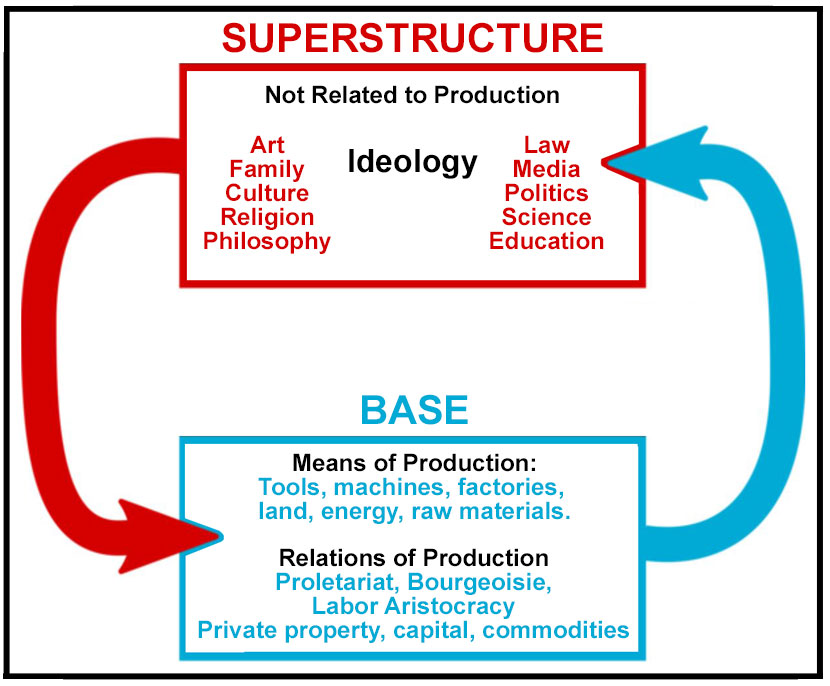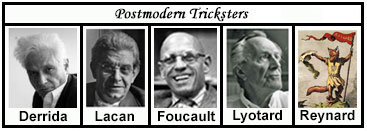Social Science "The road to relativism is paved with the best intentions and the worst of arguments" – Philip Kitchner "Physicists and chemists are not smarter than sociologists, they just study much easier problems" – Alan Sokal "Once the anchor of reason has been cut, one's craft may go anywhere. One may become a St. Francis or equally a Hitler." – Brand Blanshard "Envy is the vice of mankind" Immanuel Kant Social Science is an ‘umbrella’ term that refers to scientific fields outside the natural sciences. Social Sciences can be divided into three main
groups: Significant Social Science Theories Critical
Theory Concern for social "base and superstructure" is one of the remaining (19th-century) Marxist philosophical concepts in much contemporary critical theory.
The interpretations of society and culture is a highly complex subject having
strong historical precedence. It struggles with human biases (power and vanity); the effects of science and
technology (the recasting of the common laborer and the demands for technical skills and education); the drama of
individual and collective understandings of freedom, liberty, risk taking, enterprise, responsibility and
accountability. Dialectical
Materialism Theory Feminist Theory Feminist Theories have an emancipatory theme. Their purpose is to liberate and at the same time they try to explain and understand. Phronetic Social
Science Theory Post-colonial
Theory
Postmodernism is built on two principles: 1) knowledge principle: radical skepticism as to whether objective knowledge or truth is obtainable and a commitment to cultural constructivism. 2) political principle. the belief that society is formed of systems of power and hierarchies, which decide what can be known and how; that oppressive power structures constrain humanity and are to be deplored. The Postmodern movement is often associated with schools of thought such as deconstruction, post-structuralism, and institutional critique. In the 1970s a group of poststructuralists in France developed a radical critique of modern philosophy with roots in Nietzsche, Kierkegaard, and Heidegger, and became known as postmodern theorists, notably including Jacques Derrida, Jacques Lacan, Michel Foucault and Jean-Francois Lyotard. Postmodernism involves the belief that realities are only social constructs, subject to change inherent to time and place. It emphasizes the role of language, power relations, and motivations. It attacks the use of sharp classifications such as male versus female, straight versus gay, white versus black, and imperial versus colonial. Postmodernism holds realities to be plural and relative, and dependent on who the interested parties are and what their interests consist of. It upholds the belief that there is no absolute truth and the way in which different people perceive the world is subjective. It attempts to criticize a perceived modernist overconfidence by contrasting the difference between confident speakers and their positions versus how confident they need to be to serve their supported purposes. Above all, postmodernists attack science and its goal of attaining objective knowledge about a reality which exists independently of human perceptions which they saw as merely another form of constructed ideology dominated by bourgeois, western assumptions (academic grievance neuroticism: ‘Bourgeois Boot up the Butt’). Some analytic philosophers still tend to dismiss Nietzsche as inconsistent, speculative, meaningless, promotes obscurantism and practicing something other than "real" philosophy (eg, adds nothing to analytical or empirical knowledge). Recent scholarly researcher points out the downsides of extreme or deconstructive postmodernism: politically correct thought police; the complete dumbing down of the education system in order to avoid unpleasant grades and ranking; the pervasive erosion of first amendment rights (eg, freedom of speech vs. freedom against someone bruising one’s sensitive ego); the view that everybody is either an innocent victim or a wicked oppressing force; the trumping up of charges for those it imagines are the great oppressors; the creation of a fashionable ‘victim chic’ culture which erodes self-responsibility, demonizes so much of life’s unavoidable messiness and trivializes the real victims of oppression. Integral philosopher Ken Wilber is characteristically direct: “everything is ‘socially constructed’ is the mantra of the extremist wing of postmodernism. They think that different cultural worldviews are entirely arbitrary, anchored in nothing but power or prejudice or some “ism” or another—sexism, racism, speciesism, phallocentrism, capitalism, logocentrism.” more postmoderism... Rational Choice
Theory Social
Constructionism Theory Structural
Functionalism Theory The classic societal structure involves “patriarchy” and “matriarchy”. Early social relations have their origins in the basic forces of production (eg, ‘who puts the food on the table’). From the introduction of the heavy plow men began to dominate the public sphere of government, education, technology, science, religion and politics. And women dominated the private sphere of family, hearth and home. This division is often referred to as male production and female reproduction. Agrarian societies began to arise around 4,000-2000 BCE, in both East and West, as was the dominate mode of production until the industrial revolution. As long as agrarian societies demand physical human labor for subsistence (ie, heavy plowing), those societies inevitably and unavoidably placed a premium on male physical strength and mobility. The industrial revolution removed the emphasis on male strength and replaced it with gender-neutral engines – the women’s movement emerged for the first time in history on any sort of large scale (Mary Wollstonecraft’s Vindication of the Rights of Women was written in 1792). Social structures evolved to the point that physical strength did not overwhelmingly determine power in culture. Feminist researcher Janet Chafetz puts it, the status of women in the late industrial societies is higher than in any other surplus-producing society in history – including the horticultural. Professor of sociology George Ritzer concludes,
“According to structural functionalists, individuals have little to no control over the ways in which particular
structures operate. Individuals are ranked according to the degree to which they contribute to the survival
of society. High-ranking positions offer high rewards that make them worth an individual’s time and effort to
occupy. The structural functionalist account of stratification has been criticized on the grounds that there
must be other ways to motivate individuals to occupy particular positions and perform certain tasks without such a
disparate system of rewards.”
|

